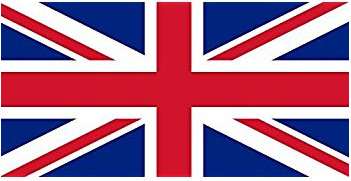As noted in the preceding chapter, choline bitartrate, the most common type of choline sold at health food stores, can cause diarrhea. If you do use it, you may be able to avoid diarrhea by beginning at a low dose and increasing the amount gradually. Choline chloride (also called choline hydrochloride) does not have this side effect. Lecithin was found to be effec-
tive at a dose of 80 grams per day in a separate study. The prescription drug Deaner® (Riker) is very effective in increasing the level of cholinergic activity in the brain. Deaner® has also been found to extend the life span of mice by 49.5 percent in one experimental series and by 27.3 percent in an-
other series. Most importantly, the maximum life span of the mice was increased in both experiments—by 36.3 percent and 26.5 percent respectively.
Another important brain chemical in learning and memory is norepinephrine, NE, another neurotransmitter. In experiments in which NE synthesis was blocked or depleted in the brain, memory was impaired. When NE was injected into a specific area in the brain of rats, their memories were enhanced. NE is used by certain neurons in the
brain to communicate with one another. The messenger chemical is stored in pouches called vesicles on the surface of the neuron’s cellular membrane and released into the gaps between nerves (synapses) when the nerves fire. Many popular stimulant drugs increase the level of NE in these synapses, resulting in greater nerve stimulation. Such drugs include amphetamines, Ritalin® (Ciba), phenylpropanolamine (an amphetaminelike compound in many over-the-counter diet aids), magnesium pemoline, and cocaine. These can temporarily improve learning in focusing and attention tasks, as well
as memory. However, these effects may be due to general stimulation rather than altered data processing by the nerves.
A serious disadvantage of these drugs is that once the stored supply of NE has been released from the vesicles and the NE in the synapses has been metabolized, the drugs no longer stimulate nerve activity (this process is called “tolerance”) until the body produces more NE. Depression is very common during the period when NE supply is low owing to the excessive use of the stimulants mentioned above. In addition to causing unpleasant feelings of depression, NE depletion in the brain severely impairs the performance of your immune system because of the brain’s failure to send the thymus gland the proper hormone signals.
The same growth hormone signal needed by your thymus is also needed for tissue repair; hence stimulant abuse has very serious health consequences.
Hyperkinetic children chronically treated with amphetamines or Ritalin® in modest doses often exhibit significant growth retardation over the years. The typical stimulant abuser takes much larger doses; hence the long-term health consequences are apt to be quite severe.
Phenylalanine, an amino acid the brain uses to make NE, can relieve or prevent depressions caused by NE depletion. Typical human doses are 100 to 1,000 milligrams per day, taken either on an empty stomach at bedtime or immediately upon awakening.
CAUTION: Overdose symptoms are irritability, insomnia, and, rarely, elevated blood pressure. People with high blood pressure should be very cautious about using phenylalanine. They should start with very low doses (100 milligrams) and check their blood pressure frequently as they very gradually increase the dose. Phenylalanine is also useful in restoring energy and vitality after stressful activities. It can
provide a lift so that you hop out of bed in the morning instead of dragging yourself out. It is excellent for writer’s block, a malady to which we sometimes fall prey. Stress and overwork deplete NE, resulting in mental fatigue and loss of concentration. Phenylalanine helps your brain to replace the lost NE.
When you feel mentally “drained,” you may be suffering from a drain on your NE stores which has exceeded your brain’s ability to replace. You can literally refill the storage pouches on your nerves by using the nonprescription nutrient amino acid phenylalanine. Plenty of vitamin C and B-6 are required for the conversion of phenylalanine and tyrosine
to NE.
The amino acid tyrosine is chemically one step closer to NE than is phenylalanine and has shown antidepressant effects in human studies. It seems, however, more likely to affect blood pressure, elevating it in some people and lowering it in others.
WARNING: Neither phenylalanine or tyrosine should be used by people taking powerful MAO (monamine oxidase) inhibitors, drugs which are rarely used now in the treatment of depression; extremely hazardous high blood pressure could result.
Are you interested in life extension products?
mod4all ships all major brands of Modafinil from the UK
All products shipped from the UK by tracked post. We guarantee delivery.
We guarantee delivery, free reshipping.
Any questions at all about payments, shipping, etc. Anything at all, just email us.

Comments (0)